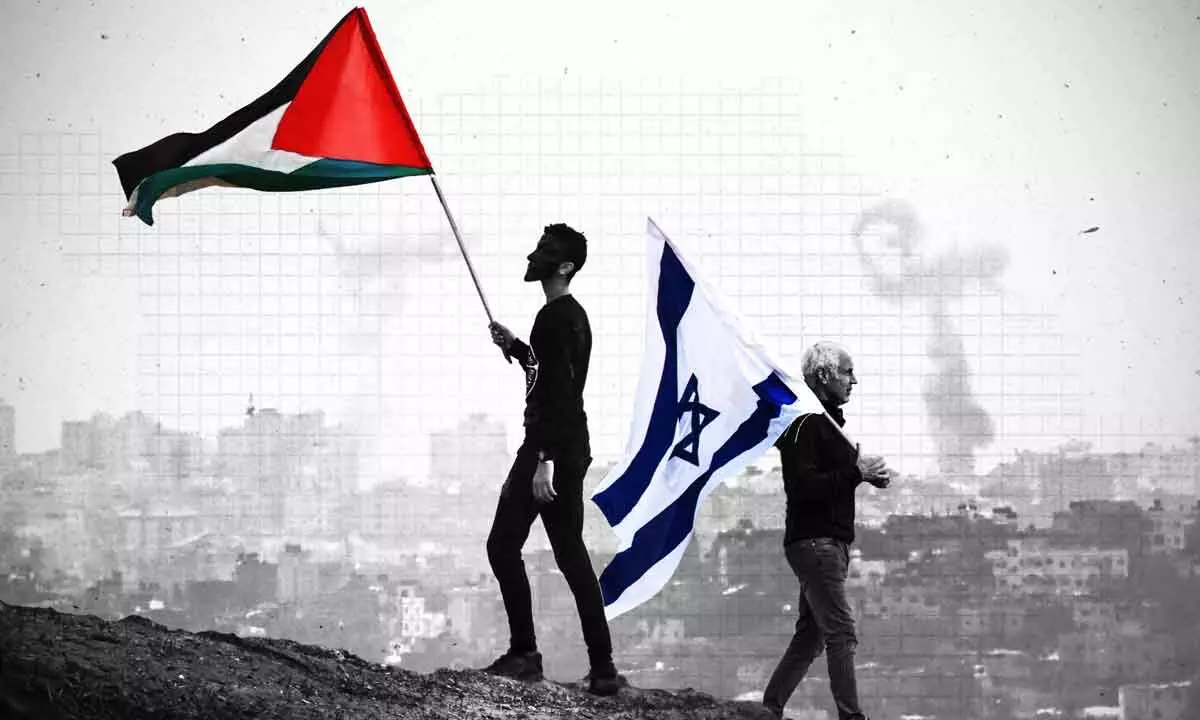Relations with Israel and Palestine require a guarded approach
image for illustrative purpose

Given its proximity to both Israel and Palestine, India must evolve a cautious approach in the present conflict times. In its first few decades of independence, India enjoyed close relations with the Palestinians while the relations with Israel began strengthening after the Cold War. A pivotal moment came in 1999, when Israel sent weapons to India during the latter’s brief war with Pakistan. India is now closer to Israel. That terrorism triggered the Israel-Hamas war could generate a strong sense of solidarity between Israel and India, which has also suffered terrorist attacks and confronted the persistent threat of terrorism for years. Since 1992, when New Delhi established full diplomatic ties with Israel, while continuing to support the Palestinian cause, there has been a shift towards Israel’s position, given increasingly close bilateral relations, trade, technological assistance, military procurement, and counter-terrorism cooperation.
New Delhi is continuing to abhor terrorism, but not to condone indiscriminate reprisal bombings, even as it holds its consistent position on Palestine. India's considerable footprint in global affairs, its willingness and ability to play a direct role in the Israeli-Palestine conflict is limited. It’s geo-strategic and political interests require that it carefully balances its growing economic and strategic relations with Israel with that of other actors in the region, including the Palestinian Authority.
With limited resources and a lack of leverage with major stakeholders, it is advisable that India limits its current policy of humanitarian assistance to the Palestinian people while continuing to improve strategic and economic relations with Israel. India should leverage its growing influence in the world to counsel Israel to exercise restraint and move towards a two-state solution. It should work with major states in the world towards that end without directly participating in the peace process. India is a victim of terrorism as is Israel, but there is an important difference. Israel’s occupation of Palestinian lands has been questioned by not only the Palestinian people but also by the Arab and Muslim world as well as the larger international community. Israel uses excessive force and treat the Palestinian population with contempt. It has often shown utter disregard to human rights violations.
In the present situation, India should not imitate Israeli counter-terrorism practices. It is better served by sticking to its first principles - deliberate use of force, democratic co-option, operating within the bounds of law, and using time and patience as strategic tools. India has a long standing political position on the Palestinian question. Any dilution of India’s historical stand will be detrimental to its interests, larger aspirations and its self-image as an inclusive democracy.
India’s relations in the Middle East also align more closely with Israel’s interests than with those of Palestinians’. Some of India’s top partners in the region—such as Egypt and the United Arab Emirates—have formal relations with Israel, while another—Saudi Arabia—was reportedly closing in on a normalization deal before the Israel-Hamas war began. Iran, a Hamas ally, is one of the few Middle Eastern states with bumps in its relations with India, mainly because New Delhi has reduced its commercial ties with Tehran in deference to U.S. sanctions.

